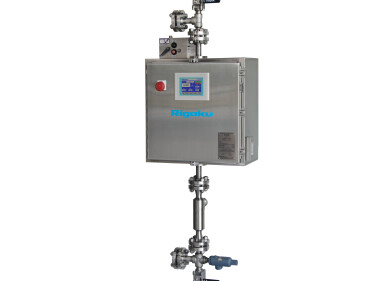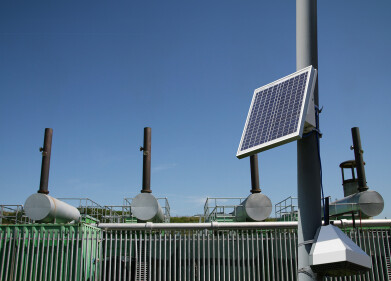Measurement and Testing
What Have OPEC Agreed for 2020?
Dec 19 2019
One of the most influential economic groups in the world, the Organisation of the Petroleum Exporting Countries (OPEC) is made up of 14 nations and has enormous power over global oil and gas prices. So what's on the horizon for 2020?
OPEC predict demand of 30 million bpd
In a recent report issued by the oil cartel, analysts predict demand for OPEC crude will hit almost 30 million barrels per day (bpd) in 2020. While earlier in the year OPEC predicted a supply glut, slow output from US shale producers has led to a reassessment of the 2020 outlook.
“On the positive side, the global trade slowdown has likely bottomed out, and now the negative trend in industrial production seen in 2019 is expected to reverse in 2020,” read the report.
Production cuts set to continue in new year
Since January, OPEC has joined forces with Russia and other oil-producing nations in a bid to slash output by 1.2 million bpd and bolster the global oil market. In a recent meeting, OPEC confirmed it will cut production by a further 500,000 bpd from January 2020. The cuts will apply to the first quarter of 2020, with potential to continue later into the year.
The group is known as OPEC+ and includes existing members of the cartel, as well as 10 non-OPEC nations, including Russia, Kazakhstan and Mexico. Together, OPEC+ controls a huge 55% of global oil supply and 90% of proven reserves. In total, the cut will amount to around 1.7 million bpd, which equates to 1.7% of global production.
“We really do see some risks of oversupply in the first quarter due to lower seasonal demand for refined products and for crude oil,” said Russian Energy Minister Alexander Novak.
Riyadh rallying for deeper cuts
While the cuts will have a significant impact on global oil supply, sources say Riyadh was petitioning for longer and deeper restrictions, while Moscow was vying for a softer approach. The hard line from Saudi Arabia was potentially fuelled by the need to push up oil prices in the lead up to the initial public offering (IPO) of Saudi Aramco, the country's state-owned oil firm. Saudi Arabia needs higher oil prices to support its budget and the initial public offering (IPO) of state oil firm Saudi Aramco, which is expected to begin trading this month.
“Saudi Arabia is pushing for deeper cuts to try and shore up prices," says Amrita Sen, co-founder of energy market research consultancy, Energy Aspects. "However, deeper compliance is imperative and hence the deal will last only for one quarter so that they can assess compliance then."
In the face of volatile oil prices, maximising efficiency is front of mind for energy producers. For a closer look at the latest optimisation tools from German based company Bartec Benke, don't miss 'rapiDist-4 – Advanced Distillation Process Analyzer Technology for Industry-leading Performance and Robustness'.
Digital Edition
PIN 25.5 Oct/Nov 2024
November 2024
Analytical Instrumentation - Picturing Viscosity – How Can a Viscometer or a Rheometer Benefit You? - Sustainable Grease Formulations: Evaluating Key Performance Parameters and Testing Method...
View all digital editions
Events
Nov 27 2024 Istanbul, Turkey
Biogas Convention & Trade Fair 2024
Nov 27 2024 Hanover, Germany
Dec 03 2024 Dusseldorf, Germany
Dec 08 2024 Anaheim, CA, USA
Turkey & Black Sea Oil and Gas
Dec 11 2024 Istanbul, Turkey



















